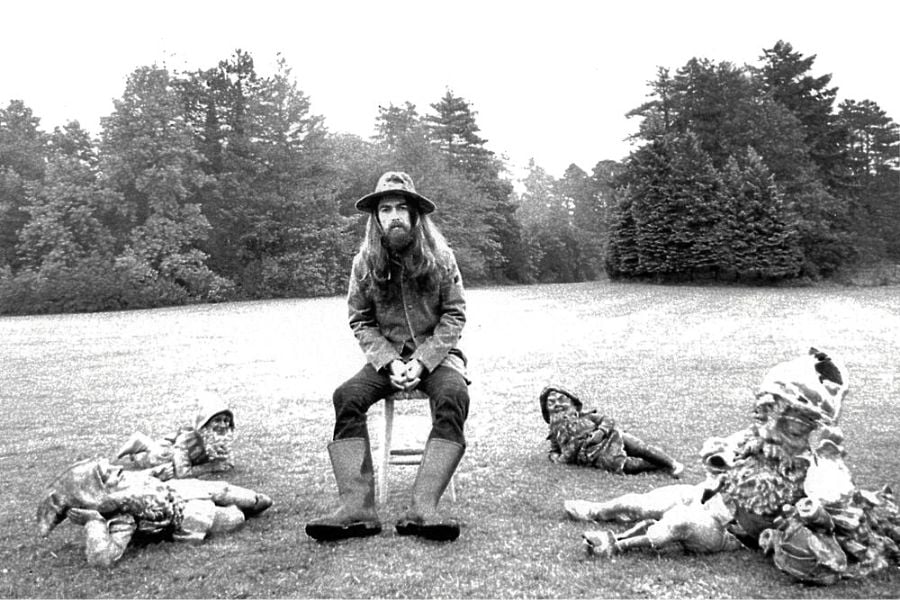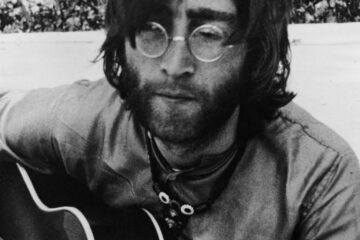“Music should be used for the perception of God, not jitterbugging.” — George Harrison
George Harrison was always operating in the shadow of John Lennon and Paul McCartney within The Beatles. Despite being such a pivotal figure in their success, there were still question marks on how he would survive outside of the Fab Four. However, when he later shared the masterpiece that is All Things Must Pass on November 27th, 1970, he would silence his critics who dared to doubt him, especially his former bandmates.
All Things Must Pass, in many ways, wasn’t initially intended to be a solo album and a large chunk of the songs that featured on the timeless record were written with The Beatles in mind. Harrison was a shy, reluctant songwriter in the early foundations of The Beatles but, by the latter years of the group, he’d grown into his own skin and was comfortable operating in it. Despite his best efforts, however, Lennon and McCartney were still treating him as their junior. The guitarist had become a prolific songwriter during the final couple of years of the band and was positively firing on all cylinders by the end of his tenure. Frustrated that he had no outlet for his creativity, Harrison found himself limited by the inner workings of the band. All Things Must Pass is the guitarist breaking free from the system that saw his work submitted through a Beatles shaped filter and is a liberating listen from start to finish.
The LP is full of tracks routinely rejected by Lennon-McCartney, the most famous of which was shunned by the band was the title track itself. The song was nearly fully-formed when Harrison brought the track to the attention of Lennon and McCartney by the duo, perhaps preoccupied or perhaps not ready to let Harrison into the fold properly, scoffed at the song when it was performed for them by the guitarist during the Let It Be sessions.
When the song was rejected by The Beatles during a particularly fractious session, Harrison decided to pass the number along to Billy Preston before rightly taking it back for his debut solo album. If there was one song to confirm that Harrison needed to get out of the band and pursue his own material, it is certainly ‘All Things Must Pass’. However, even with that said, there are many more.
Another song, ‘Not Guilty’, was actually picked up by the Fab Four for a recording session. In fact, rumour has it they gave it over 100 goes when trying to perfect the material. Written during the band’s trip to India, a trip that provided a proverbial treasure chest of songs, the track was shelved by the band at the last minute and kept off the album which only added to Harrison’s disenfranchisement. “Actually, I wrote that in 1968,” confirmed Harrison on The Beatles Anthology, where the track was released as ‘Take 102’. “It was after we got back from Rishikesh in the Himalayas on the Maharishi trip, and it was for the White Album. We recorded it but we didn’t get it down right or something. Then I forgot all about it until a year ago, when I found this old demo I’d made in the sixties.” The demo was from 1968 and was recorded at Kinfauns, his home in Esher, Surrey but eventually found an updated vision of the song features on 1979’s George Harrison.
With the album built on past disappointment and its transformation into freedom, one song which featured on All Things Must Pass can surely be considered one of Harrison’s best-ever, yet it struggled to find any love from The Beatles. ‘Isn’t It A Pity’ was another victim of the Let It Be sessions, a period which was beleaguered by Paul McCartney’s ego and John Lennon’s lack of focus. The song, which is arguably one of his best, failed to find any room on the Beatles floor.
The relentless rejection of many of his songs eventually saw the guitarist walk out of the band temporarily. During his mini-break from the group, Harrison also wrote a bitter goodbye to the group in ‘Wah Wah’, which he also tried to have the band record but, yet again, with no movement from Lennon and McCartney, Harrison was left to place it on his new solo record.
The turning point for Harrison, however, came when he worked as a producer on Jackie Lomax’s record in 1968, a time which gave him a renewed sense of creativity yet, when he came back to The Beatles, he instantly became deflated. He told Crawdaddy Magazine: “I found I was starting to be able to enjoy being a musician, but the moment I got back with the Beatles it was just too difficult. There were just too many limitations based upon our being together for so long. Everybody was sort of pigeon-holed. It was frustrating.”
Harrison then profoundly added: “The problem was that John and Paul had written songs for so long it was difficult. First of all, because they had such a lot of tunes and they automatically thought that theirs should be a priority.” It meant when Harrison was finally the main attraction, he had a wealth of tracks to choose from: “So for me, I’d always have to wait through ten of their songs before they’d even listen to one of mine. That was why All Things Must Pass had so many songs because it was like I’d been constipated.
“I had a little encouragement from time to time, but it was very little. It was like they were doing me a favour. I didn’t have much confidence in writing songs because of that. Because they never said, ‘Yeah that’s a good song.’ When we got into things like ‘While My Guitar Gently Weeps,’ we recorded it one night and there was such a lack of enthusiasm. So I went home really disappointed because I knew the song was good.”
Infamous producer Phil Spector remembered the moment Harrison opened up his treasure chest of songs he’d written: “I went to George’s Friar Park and he said, ‘I have a few ditties for you to hear.’ It was endless! He had literally hundreds of songs and each one was better than the rest. He had all this emotion built up when it was released to me.” It was clear that All Things Must Pass was more than just an album for Harrison, it was an exorcism. Within the album he not only got to show off his supreme songwriting but his spiritual balance too, using the record to highlight the way he saw the world, using the songs to not only excite the fans but to try and find something deeper within them too.
Harrison had finally built up enough confidence in his songwriting, something which he lacked in the early days of the band and, after stepping out on his own two feet as an artist, he knew he was more than capable of achieving success. Simply put, his greatness was falling on deaf ears as he tried to establish songs which would make his huge solo LP All Things Must Pass a hit.
Instead, Harrison and the rest of the band eventually decided enough was enough and they went their separate ways. Of course, for the early post-Beatles years, it was George who was leading the pack in album sales, worldwide recognition and critical acclaim for his mammoth new record All Things Must Pass. The album would go on to sell millions of copies, topping the charts on both sides of the pond and making the sales of Lennon and McCartney’s first attempts after the band feel a little paltry. If The Beatles had allowed George to take the lead from a creative standpoint for an album, using this immense arsenal of songs he’d built up, then who knows what the future would have held for The Fab Four.
As it was, All Things Must Pass saw him finally freeing himself from the shackles of The Beatles and the songs offer up a delectable sound of creative freedom that he had been craving, it’s something which oozes out of every note. Harrison created an album in his image; part pop star, part rocker, part spiritual guru, there’s no doubt that All Things Must Pass allowed him to finally tell the world exactly what kind of artist George Harrison truly is.



